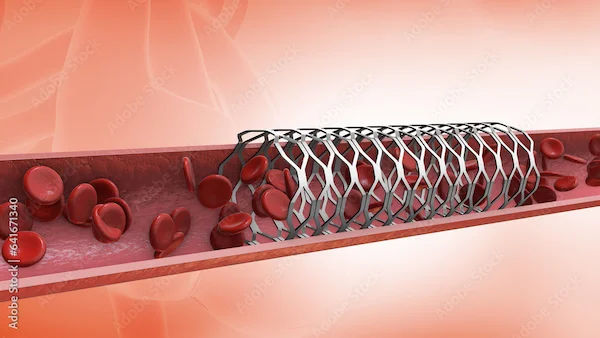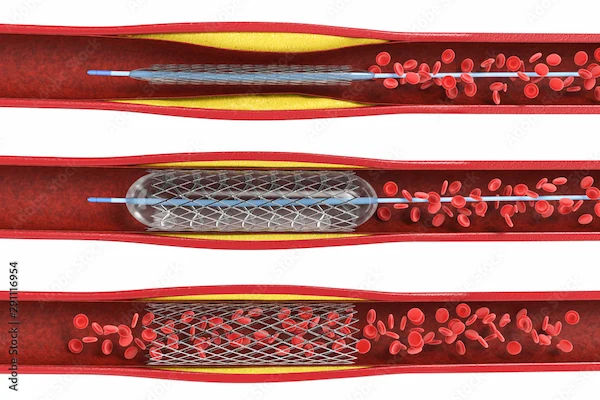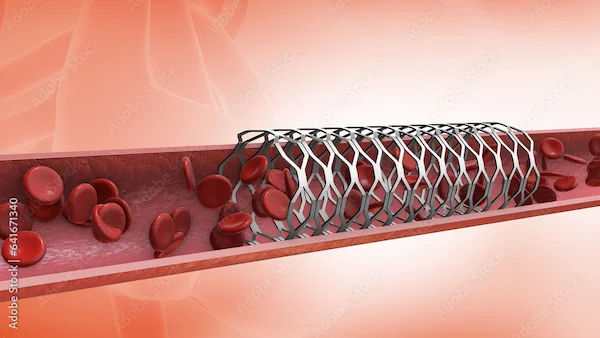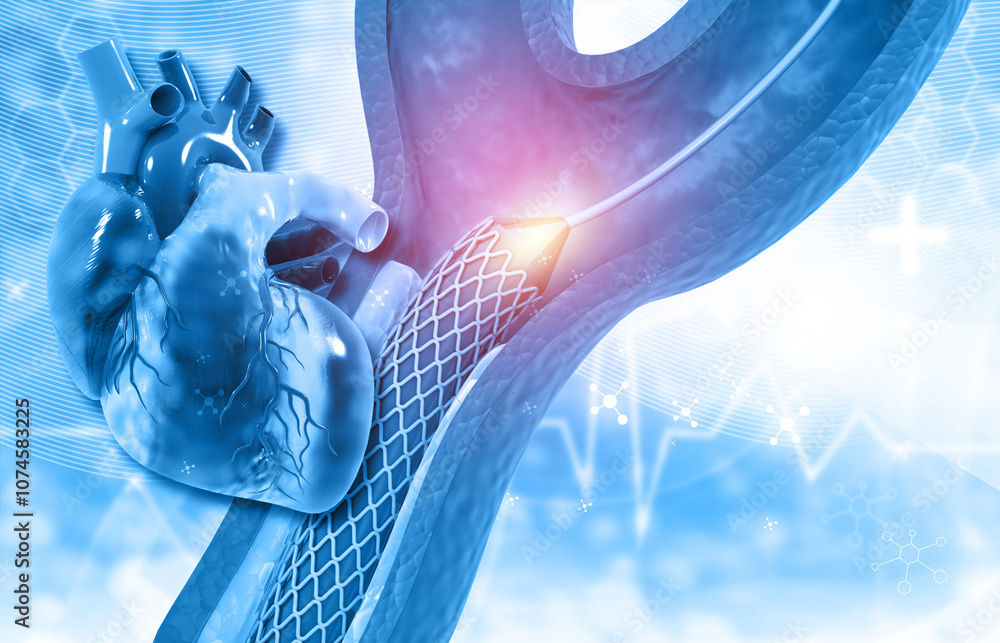Is Low Blood Pressure After Angioplasty Normal?
Experiencing low blood pressure after angioplasty? Learn what it might mean, possible causes, symptoms to watch for, and when to seek medical help.

Written by
Last updated on 7th Jul, 2025
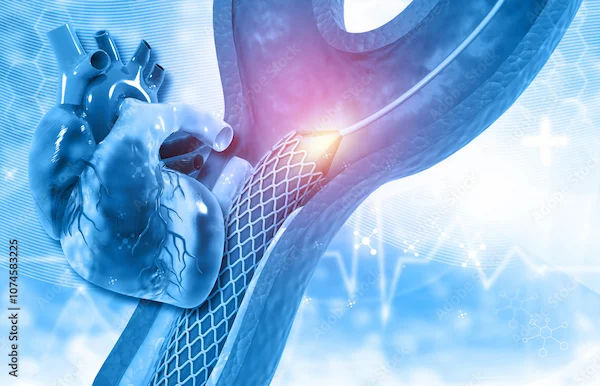
Introduction
Undergoing an angioplasty can be a life-saving procedure, especially for those with blocked arteries. However, many patients notice changes in their blood pressure afterwards, particularly low blood pressure (hypotension). If you’ve recently had an angioplasty and are experiencing low blood pressure, you may wonder whether this is normal or a cause for concern.
In this article, we’ll explore what low blood pressure after angioplasty might indicate, what causes it, and when it may require further evaluation.
Understanding Low Blood Pressure After Angioplasty
After an angioplasty, it’s not unusual for blood pressure to fluctuate. Some patients may experience temporary low blood pressure due to:
Medications: Blood thinners, beta-blockers, or other heart medications can lower blood pressure.
Dehydration: Reduced fluid intake before or after the procedure can cause a drop.
Heart function changes: If the heart is still adjusting after the procedure, it may pump blood less forcefully.
Bleeding or complications: Rarely, internal bleeding or other issues may lead to low BP.
In most cases, mild hypotension is normal and stabilises within a few days. However, if it persists or causes symptoms, it needs attention.
Symptoms of Low Blood Pressure to Watch For
While some people feel fine with slightly low BP, others may experience:
Dizziness or lightheadedness
Fatigue or weakness
Blurred vision
Nausea
Fainting spells
Rapid, shallow breathing
If these symptoms are severe or frequent, consult your doctor immediately.
Consult Top Specialists for Personalised Heart Health Advice
When Should You Be Concerned?
Low blood pressure after angioplasty is usually temporary, but you should seek medical help if:
Your BP drops suddenly and severely such as below 90/60 mmHg with symptoms.
You feel confused, extremely weak, or faint.
You notice irregular heartbeats (palpitations).
There is excessive sweating, chest pain, or shortness of breath.
These could indicate complications like internal bleeding, heart rhythm problems, or excessive medication effects.
How to Manage Low Blood Pressure After Angioplasty
If your BP is slightly low but stable, these tips may help:
1. Stay Hydrated
Unless fluid intake is restricted, drinking enough water may help stabilise BP.
2. Move Slowly
Rising slowly from bed or chairs might prevent sudden drops in pressure.
3. Eat Small, Frequent Meals
Large meals may trigger post-meal hypotension. Smaller, more frequent meals could be beneficial.
4. Wear Compression Stockings
These may help promote better circulation and reduce blood pooling in the legs.
5. Monitor Your BP Regularly
Keeping a record of BP readings may help detect patterns or changes.
6. Follow Medication Instructions
Adhering to prescribed doses might reduce the risk of excessive BP drops. Do not stop or change medications without medical advice.
When to See a Doctor
If low BP persists beyond a few days or worsens, consult your cardiologist. They may:
Adjust your medications
Check for complications like bleeding or heart issues
Recommend further tests if needed
Final Thoughts
Mild low blood pressure after angioplasty is common and often temporary, but persistent or severe drops need medical evaluation. By staying hydrated, moving carefully, and monitoring symptoms, you can manage it effectively.
If you’re unsure about your BP levels or experiencing concerning symptoms, consult a doctor immediately. Apollo 24|7 offers easy online consultations with cardiologists—book an appointment today for expert guidance.
Consult Top Cardiologists
Consult Top Specialists for Personalised Heart Health Advice

Dr. Amit. A. Bharadiya
Cardiologist
12 Years • MBBS, MD General Medicine, DNB Cardiology, FSCAI
Maharashtra
Surabhi Hospital, Maharashtra, Maharashtra

Dr. Pinaki Nath
Cardiologist
8 Years • MBBS, MD General Medicine, DM Cardiology
Barasat
Diab-Eat-Ease, Barasat
Dr. Dixit Garg
Cardiologist
10 Years • MBBS , DNB (General medicine) , DNB (cardiology)
Gurugram
Smiles & Hearts, Gurugram
Dr. Sibashankar Kar
Cardiologist
10 Years • MBBS, DNB
Bhubaneswar
Hi-Tech Medical College & Hospital, Bhubaneswar

Dr. Mangesh Danej
Cardiologist
8 Years • MBBS, MD (General Medicine), DNB (Cardiology)
Pune
Dr Danej clinic, Pune
(375+ Patients)
Consult Top Cardiologists

Dr. Amit. A. Bharadiya
Cardiologist
12 Years • MBBS, MD General Medicine, DNB Cardiology, FSCAI
Maharashtra
Surabhi Hospital, Maharashtra, Maharashtra

Dr. Pinaki Nath
Cardiologist
8 Years • MBBS, MD General Medicine, DM Cardiology
Barasat
Diab-Eat-Ease, Barasat
Dr. Dixit Garg
Cardiologist
10 Years • MBBS , DNB (General medicine) , DNB (cardiology)
Gurugram
Smiles & Hearts, Gurugram
Dr. Sibashankar Kar
Cardiologist
10 Years • MBBS, DNB
Bhubaneswar
Hi-Tech Medical College & Hospital, Bhubaneswar

Dr. Mangesh Danej
Cardiologist
8 Years • MBBS, MD (General Medicine), DNB (Cardiology)
Pune
Dr Danej clinic, Pune
(375+ Patients)
